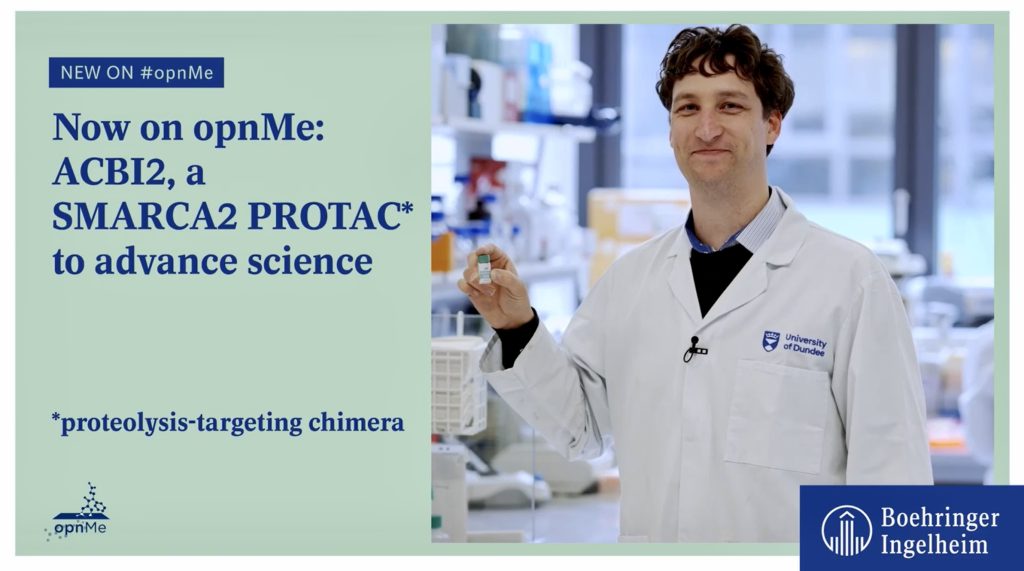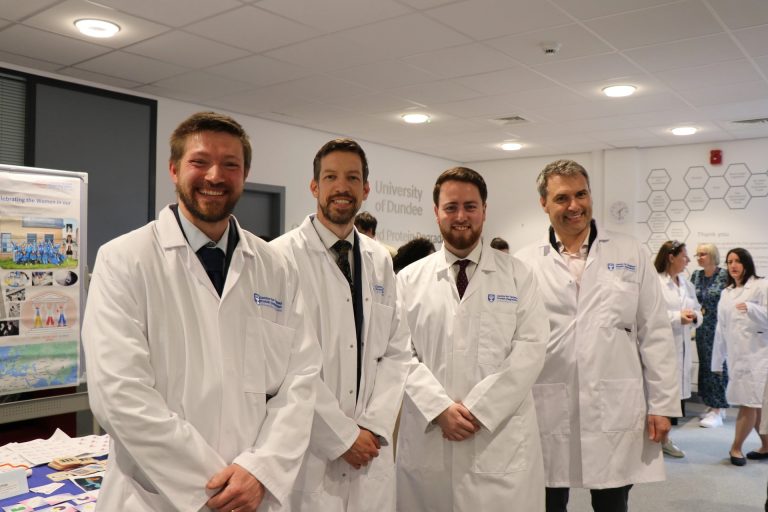
Scientists have designed a novel molecule capable of destroying an as-yet undruggable cancer-causing protein – and are making it available for researchers around the world to use in their own work, free of charge.
*A molecule capable of destroying a cancer-causing protein is now available to labs around the world via the access portal opnMe.com. A video explaining more about the molecule and its potential for future scientific discoveries can be seen here.
ACBI2 – the molecule jointly discovered by the University of Dundee and biopharmaceutical company Boehringer Ingelheim – will be available for other researchers to use in their own investigations through opnMe.com.
The initiative aims to rally the power and resources of the worldwide medical research community to transform the lives of people with cancer by developing better treatments for patients, who so far have no or only insufficient options.
The provision of the new molecule will enable cancer researchers from around the world to accelerate their research and achieve a deeper understanding of the disease biology of cancer and other areas of high unmet medical need.
The discovery of ACBI2 represents a breakthrough in the selective targeting and degradation of the protein SMARCA2, which plays a key role in gene regulation and has been found to be involved in the development of various cancers.
Degrading rather than inhibiting a target protein offers several advantages such as more efficacious drug response at lower doses, and a more surgical intervention with potentially reduced side effects and disease resistance.
The discovery has today been published in the journal Nature Communications and unveils important learnings in how degrader molecules can be optimised towards oral dosing – the preferred route of drug administration for patients. This increases the likelihood of their continued translation into human clinical trials.
“This research marks an important breakthrough in the design of molecules to target and destroy cancer-causing proteins, highly selectively and as orally dosed therapies,” said Dr Will Farnaby, Collaboration Leader within the University’s Centre for Targeted Protein Degradation (CeTPD).
“We expect the discovery of ACBI2 to provide a vital blueprint for the future discovery of targeted protein degradation drugs and act as a critical tool to understand SMARCA2 biology.
“We call for researchers to take ACBI2 into their own labs to inspire further breakthroughs in cancer research and beyond.”
The discovery has arisen from the collaboration between the CeTPD and Boehringer Ingelheim’s cancer research division.
The University of Dundee is a world leader in targeted protein degradation (TPD), a field of chemical biology that is revolutionising drug discovery. TPD is applicable to diverse therapeutic areas including oncology, inflammation, dermatology, immunology and respiratory diseases.
Read the story on:
